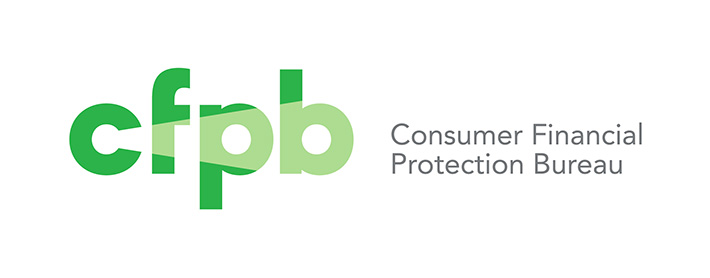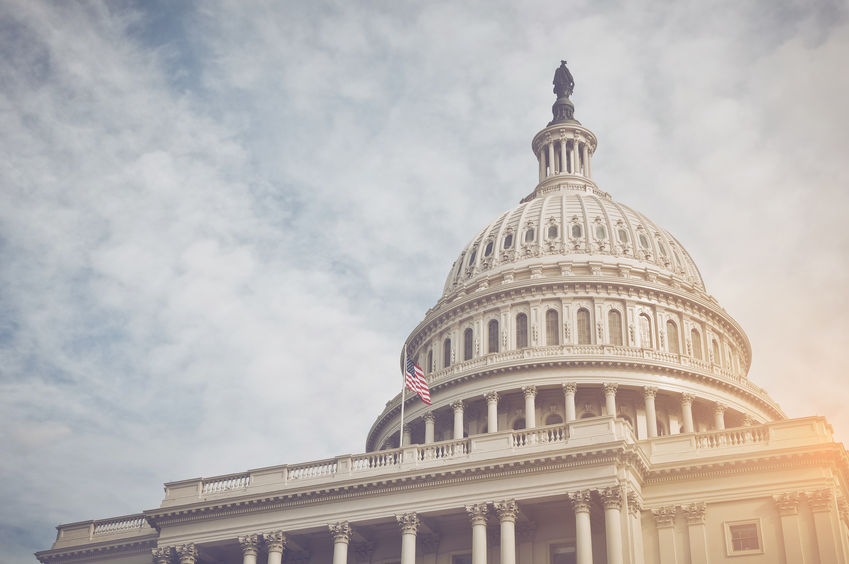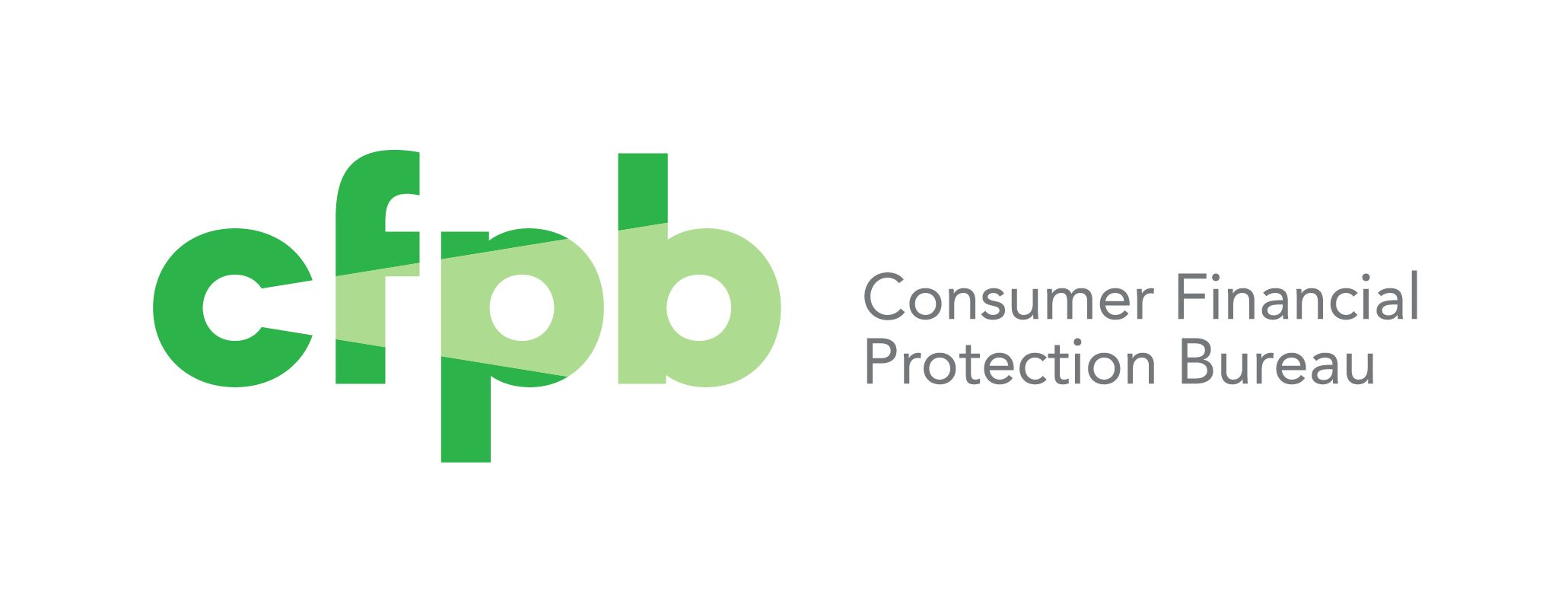Story Series: Section 1071
CFPB Rule Would Likely Impact Sale of Business Loan Applicant Data
December 3, 2024 A proposed rule by the CFPB aims to “Stop Data Brokers from Selling Sensitive Personal Data to Scammers, Stalkers, and Spies” by limiting “the sale of personal identifiers like Social Security Numbers and phone numbers collected by certain companies and make sure that people’s financial data such as income is only shared for legitimate purposes, like facilitating a mortgage approval, and not sold to scammers targeting those in financial distress.” Presented as a consumer-facing protection that would make parties selling data subject to the Fair Credit Reporting Act while prohibiting the sale of such data to third parties for “marketing” the full 206-page proposal suggests that it would apply equally when individual information is used in the course of applying for business loans.
A proposed rule by the CFPB aims to “Stop Data Brokers from Selling Sensitive Personal Data to Scammers, Stalkers, and Spies” by limiting “the sale of personal identifiers like Social Security Numbers and phone numbers collected by certain companies and make sure that people’s financial data such as income is only shared for legitimate purposes, like facilitating a mortgage approval, and not sold to scammers targeting those in financial distress.” Presented as a consumer-facing protection that would make parties selling data subject to the Fair Credit Reporting Act while prohibiting the sale of such data to third parties for “marketing” the full 206-page proposal suggests that it would apply equally when individual information is used in the course of applying for business loans.
“The CFPB expects that the proposal may have a limited impact on the cost of credit for small entities. One small entity representative stated during the SBREFA process that the proposed rule may affect the cost and ease of accessing credit for small entities. In particular, the written instructions provision may slow down the application process for small business loans because creditors lending to small businesses check the personal credit of the small business owner and may need to rely on the small business owner’s written authorization to do so. In theory, the proposed rule could increase the cost of credit for small businesses if the compliance costs discussed above are passed on to small businesses in the form of higher on loans from lenders.””
“Data brokers sell lists of financially vulnerable individuals to predatory lenders for targeted marketing campaigns,” the CFPB wrote in a summary of the propsal. “This practice is compounded by the widespread sale of personal identifiers collected by consumer reporting agencies, also known as ‘credit header’ data—including names, addresses, and Social Security numbers—which has created a thriving market for sensitive personal information that puts Americans’ privacy and financial security at risk.”
Anyone can officially comment on this proposal until March 3, 2025.
Announcement
Proposed Rule
Trade Group Sues CFPB Over Small Business Loan Data Collection Rules
January 4, 2024 The RBFC has filed a lawsuit against the CFPB over its data collection rules that are scheduled to go into effect this year.
The RBFC has filed a lawsuit against the CFPB over its data collection rules that are scheduled to go into effect this year.
As readers may recall, the federal regulator created 888 pages of rules governing how small business lenders (including MCA companies) will be required to collect and submit data for federal analysis.
At first, it appeared that the CFPB had way overstepped its bounds when Congress, on a bi-partisan basis, passed a resolution to scrap the rules. President Biden, however, then took the unprecedented step of vetoing their resolution on his belief that the rules were necessary to “conduct oversight of abusive and predatory lenders.”
One week after the veto the RBFC filed its lawsuit.
Although the CFPB is required by law to collect small business loan data pursuant to Section 1071 of the Wall Street Reform and Consumer Protection Act, the plaintiff took umbrage with the CFPB’s allegedly deliberate misinterpretation of the words “credit” and “loan” as they’re written in that statute. That’s because the CFPB unilaterally decided those terms also apply to MCAs/Sales-Based-Financing agreements. The RBFC contests that the CFPB has the legal authority to include products outside the scope of the federal statute and asks the Court to declare the rules invalid as they apply to sales-based financing.
Biden Vetoes Congressional Resolution to Scrap CFPB’s Small Business Lending Rules
December 19, 2023 Bipartisan or not, President Biden formally vetoed S.J.Res. 32 which would have scrapped the CFPB’s 888 pages of soon-to-be implemented small business lending rules and forced the agency to create new ones.
Bipartisan or not, President Biden formally vetoed S.J.Res. 32 which would have scrapped the CFPB’s 888 pages of soon-to-be implemented small business lending rules and forced the agency to create new ones.
The CFPB is obligated by the Wall Street Reform and Consumer Protection Act to collect data from small business finance companies (MCA included) so that it will be able to assess the market and measure potential disparities. It is a limited scope law that nevertheless resulted in 888 pages of rules explaining how to collect that data and send it to the federal government. They are slated to go into effect very soon.
Despite data collection being the intended purpose, Biden suggested in his official veto statement that the rules are actually intended to “conduct oversight of abusive and predatory lenders.”
“If enacted, this resolution would harm all those that stand to benefit from expanded transparency and accountability,” Biden said. “By hampering efforts to promote transparency and accountability in small business lending, Republicans are siding with big banks and corporations over the needs of small business owners.”
Unless litigation changes the timelines, many funders and lenders must start complying by October 1, 2024. This is a federal law, not a state requirement.
Congressional Resolution Aims to Undo CFPB’s Small Business Lending Rules
June 12, 2023 After 13 years of regulatory debate and 888-pages of official rules finally ready to go into effect, some members of Congress have decided that the whole thing is all wrong. At issue is a section of a 2010 federal law that requires the CFPB to collect data from companies engaged in small business financing. However, for more than a decade the statute became a political football, creating delays and sowing confusion over who it is that is supposed to be covered. Lawsuits filed against the CFPB finally prompted it to move forward with its mandate which culminated in an 888-page rulebook that was published in March.
After 13 years of regulatory debate and 888-pages of official rules finally ready to go into effect, some members of Congress have decided that the whole thing is all wrong. At issue is a section of a 2010 federal law that requires the CFPB to collect data from companies engaged in small business financing. However, for more than a decade the statute became a political football, creating delays and sowing confusion over who it is that is supposed to be covered. Lawsuits filed against the CFPB finally prompted it to move forward with its mandate which culminated in an 888-page rulebook that was published in March.
On May 31, however, members of the House and Senate introduced a Joint Resolution to invalidate the rules.
“Resolved by the Senate and House of Representatives of the United States of America in Congress assembled, That Congress disapproves the rule submitted by the Consumer Financial Protection Bureau relating to “Small Business Lending Under the Equal Credit Opportunity Act (Regulation B)” (88 Fed. Reg. 35150), and such rule shall have no force or effect.”
A hearing on the matter is scheduled to be heard on June 14 at 10am. As part of it, CFPB Director Rohit Chopra is expected to testify.
Update: Hearing is here:
It remains to be seen whether the Resolution will carry weight. There are 23 Republican co-sponsors of the bill and 0 Democrats.
CFPB Publishes Long Awaited Proposed Rule on Small Business Loan Data Collection
September 1, 2021 A 918-page proposed rule published by the Consumer Financial Protection Bureau (if you don’t know what this bureau is, now is a good time to read up), is finally out.
A 918-page proposed rule published by the Consumer Financial Protection Bureau (if you don’t know what this bureau is, now is a good time to read up), is finally out.
Its application is broad, extending to “loans, lines of credit, credit cards, and merchant cash advances,” the CFPB said today. Initially, the Bureau’s intent was to exclude merchant cash advances, but that has apparently changed. (side note: I predicted this could happen as early as 2014.) Meanwhile, “factoring, leases, consumer-designated credit used for business purposes, and credit secured by certain investment properties” are exempt from the rule.
The rule is designed to assess whether there are disparities in sex, race, and ethnicity, when it comes to small businesses being able to access credit.
Covered financing providers would have to request that applicants disclose these things, which applicants can refuse to answer if they so choose. It could get a bit awkward from there because “if an applicant does not provide any ethnicity, race, or sex information for at least one principal owner, the Bureau is proposing that the financial institution must collect at least one principal owner’s race and ethnicity (but not sex) via visual observation and/or surname if the financial institution meets in person with any principal owners (including meeting via electronic media with an enabled video component).
BUT “minority-owned business status and women-owned business status would only be reported on the basis of information the applicant provides specifically for Section 1071 purposes, and financial institutions would not be permitted or required to report these data points based on visual observation, surname, or any other basis.”
Further, no one involved in the underwriting of the loan or advance would be allowed to know or access the ethnicity, race, or sex of the applicant. However, this would not apply if it isn’t “feasible” to do so.
All of the nuances, which seem to contradict themselves on the surface level, are specified in greater detail in the 918 page document.
When the proposed rule becomes final, lenders and MCA providers would have 18 months before they would be required by law to not only collect this data in the properly established manner, but also be prepared to submit it annually to the CFPB.
This rule will become a standard operating part of the business for companies both large and small whether one agrees with it or not. This law was passed in 2010 and it has taken this long to get to this point. This is a link to the CFPB’s official summary.
CFPB Initially Proposed to Exclude MCAs, Factoring, and Equipment Leasing From Section 1071
December 17, 2020 After ten years of debate over when and how to roll out the CFPB’s mandate to collect data from small business lenders, the Bureau has initially proposed to exclude merchant cash advance providers, factors, and equipment leasing companies from the requirement, according to a recently published report.
After ten years of debate over when and how to roll out the CFPB’s mandate to collect data from small business lenders, the Bureau has initially proposed to exclude merchant cash advance providers, factors, and equipment leasing companies from the requirement, according to a recently published report.
The decision is not final. A panel of Small Entity Representatives (SERS) that consulted with the CFPB on the proposed rollout recommended that the “Bureau continue to explore the extent to which covering MCAs or other products, such as factoring, would further the statutory purposes of Section 1071, along with the benefits and costs of covering such products.”
The SERS included individuals from:
- AP Equipment Financing
- Artisans’ Bank
- Bippus State Bank
- CDC Small Business Finance
- City First Bank
- Floorplan Xpress LLC
- Fundation Group LLC
- Funding Circle
- Greenbox Capital
- Hope Credit Union
- InRoads Credit Union
- Kore Capital Corporation
- Lakota Funds
- MariSol Federal Credit Union
- Opportunity Fund
- Reading Co-Operative bank
- River City Federal Credit Union
- Security First Bank of North Dakota
- UT Federal Credit Union
- Virginia Community Capital
The panel discussed many issues including how elements of Section 1071 could inadvertently embarrass or deter borrowers from applying for business loans. That would run counter to the spirit of the law which aims to measure if there are disparities in the small business loan market for both women-owned and minority-owned businesses.
One potential snag that could complicate this endeavor is that the concept of gender has evolved since Dodd-Frank was passed in 2010. “One SER stated that the Bureau should consider revisiting the use of male and female as categories for sex because gender is not binary,” the CFPB report says.
But in any case, there was broad support for the applicants to self-report their own sex, race, and ethnicity, rather than to force loan underwriters to try and make those determinations on their own. The ironic twist, however, according to one SER, is that when applicants are asked to self-report this information on a business loan application, a high percentage refuse to answer the questions at all.
The CFPB will eventually roll the law out in some final fashion regardless. The full report can be viewed here.
Greenbox Capital on Official Panel to Aid Section 1071’s Rollout
October 21, 2020 This week, Greenbox Capital, the Miami-based alternative finance company known for its MCA and SMB financing, announced they are serving as a Small Entity Representative (SER) to the Consumer Financial Protection Bureau (CFPB) as the organization proceeds with the rollout of Section 1071 of the Dodd-Frank Act.
This week, Greenbox Capital, the Miami-based alternative finance company known for its MCA and SMB financing, announced they are serving as a Small Entity Representative (SER) to the Consumer Financial Protection Bureau (CFPB) as the organization proceeds with the rollout of Section 1071 of the Dodd-Frank Act.
“I am representing, and Greenbox Capital is essentially representing, the industry,” CEO Jordan Fein said. “There are some banks, there’s Funding Circle, but other than that, it’s Greenbox Capital serving in the industry.”
Fein, who founded Greenbox in 2012 and has since facilitated MCAs and business loans across America, Puerto Rico, and Canada, wrote in a press release that it was an honor to be selected to provide feedback on Section 1071.
“Over 2 million businesses across the U.S. are either women or minority-owned,” Fein wrote. “It is vital they can secure funding as easily as non-minority-owned businesses.”

Congress passed the Dodd-Frank Act in 2010 in response to the Great Recession. To further protect consumers, the CFPB was born. Section 1071, an amendment to the 1974 Equal Credit Opportunity Act, mandates financial institutions report demographic information to the CFPB. But much was left undefined about how to go about doing that and who would technically be subject to it.
Ultimately, the intent behind the law was to measure potential disparities among factors like the race and gender of applicants. Ten years later, the rollout is finally moving along.
As part of this, the CFPB created a board of firms representing the affected industry, on which Greenbox sits, to ensure the law works with the industry, not against it. The first panel was on October 15, in compliance with the 1996 Small Business Regulatory Enforcement Fairness Act (SBREFA.)
“They’re going through the SBREFA process, which is a structured process where they have a panel of industry representatives, and they share what they’re planning to do,” Fein said. “They run it by companies like us and we give our opinion and talk about how we think companies will be impacted.”
According to an invitation letter the firms received, they will have until November 9 to respond.
Fein said Greenbox would ensure any suggestions it made would positively impact the industry. Especially during a pandemic, Fein said it is essential to create regulation with firms in mind.
Section 1071 is Back and The CFPB Wants to Know How Much It Will Cost You to Comply
August 25, 2020 At some point in this century, small business finance companies will be expected to comply with Section 1071 of the Wall Street Reform and Consumer Protection Act that was passed in 2010.
At some point in this century, small business finance companies will be expected to comply with Section 1071 of the Wall Street Reform and Consumer Protection Act that was passed in 2010.
In the wake of the ’08-’09 financial crisis (remember that?!), lawmakers passed the above act that has become colloquially known as Dodd-Frank. Section 1071 gave the Consumer Financial Protection Bureau the authority and the mandate to collect data from small business lenders (and similar companies).
The costs, risks, and challenges with rolling out this law have been discussed on deBanked for 5 years, yet little progress has been made to finally implement it. But it’s starting to move along and the CFPB would now like to know how expensive it will be for businesses to comply.
If you are engaged in small business finance, you should seriously consider submitting a response to their survey. The CFPB is specifically cataloging responses from merchant cash advance companies, fintech lenders, and equipment financiers.





























